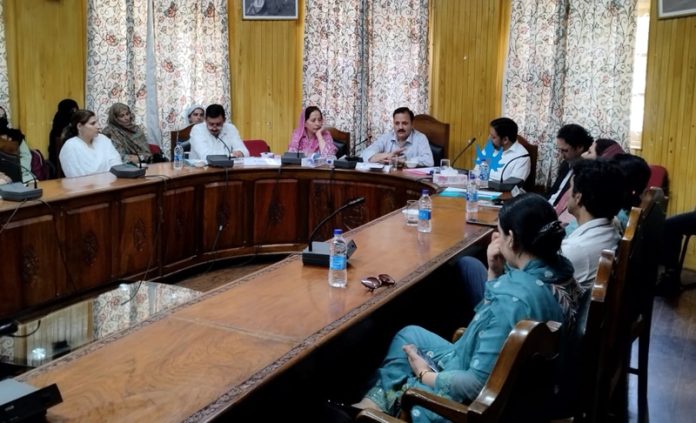Excelsior Correspondent
SRINAGAR, May 23: The Centre for Women’s Studies and Research (CWSR), University of Kashmir (KU), in collaboration with the Indian Council of Social Science Research (ICSSR), New Delhi, organised a two-day workshop, titled, ‘Depression and Suicidal Tendencies Among Young Female Population in Kashmir’.
In his keynote, Prof Arshad Hussain, Department of Psychiatry, GMC Srinagar, described suicide as “a complex, multi-dimensional phenomenon” and a significant public health concern. “There is an urgent need for a comprehensive, multi-layered strategy involving diverse stakeholders, including suicide prevention experts, policymakers, Government officials, media, individuals with lived experiences and the public,” he said.
He also outlined the need for workshops, training sessions, panel discussions with experts and awareness campaigns to mitigate the issues related to mental health.
Head, Department of Psychiatry, GMC Srinagar, Dr Mohammad Maqbool, emphasised the importance of suicide prevention and mental health care. “We need to understand the physical and psychological warning signs of suicide and also the importance of supporting peers who may be feeling low or experiencing self-sufficiency issues,” he said.
In her message, KU Vice Chancellor, Prof Nilofer Khan, underscored the seriousness of suicide as a public health concern with long-lasting effects on individuals and communities. She emphasised that women are more prone to suicidal ideation and attempts than men.
KU Registrar, Prof Naseer Iqbal, in his special address, during the inaugural session, noted that the rising suicide rates in Kashmir are influenced by various socioeconomic, political and cultural factors. “Unemployment, social isolation, family issues, examination failures, relationship failures and modernisation are the notable contributors to the issue,” he added.
Coordinator, CWSR, Dr Roshan Ara, highlighted the critical role of the department in addressing sensitive issues affecting young women.
The workshop included contributions from experts such as Prof Hussain, Prof Humaira Azim, Professor Tabassum Firdous and Prof Touseef Rizvi, the statement added.


